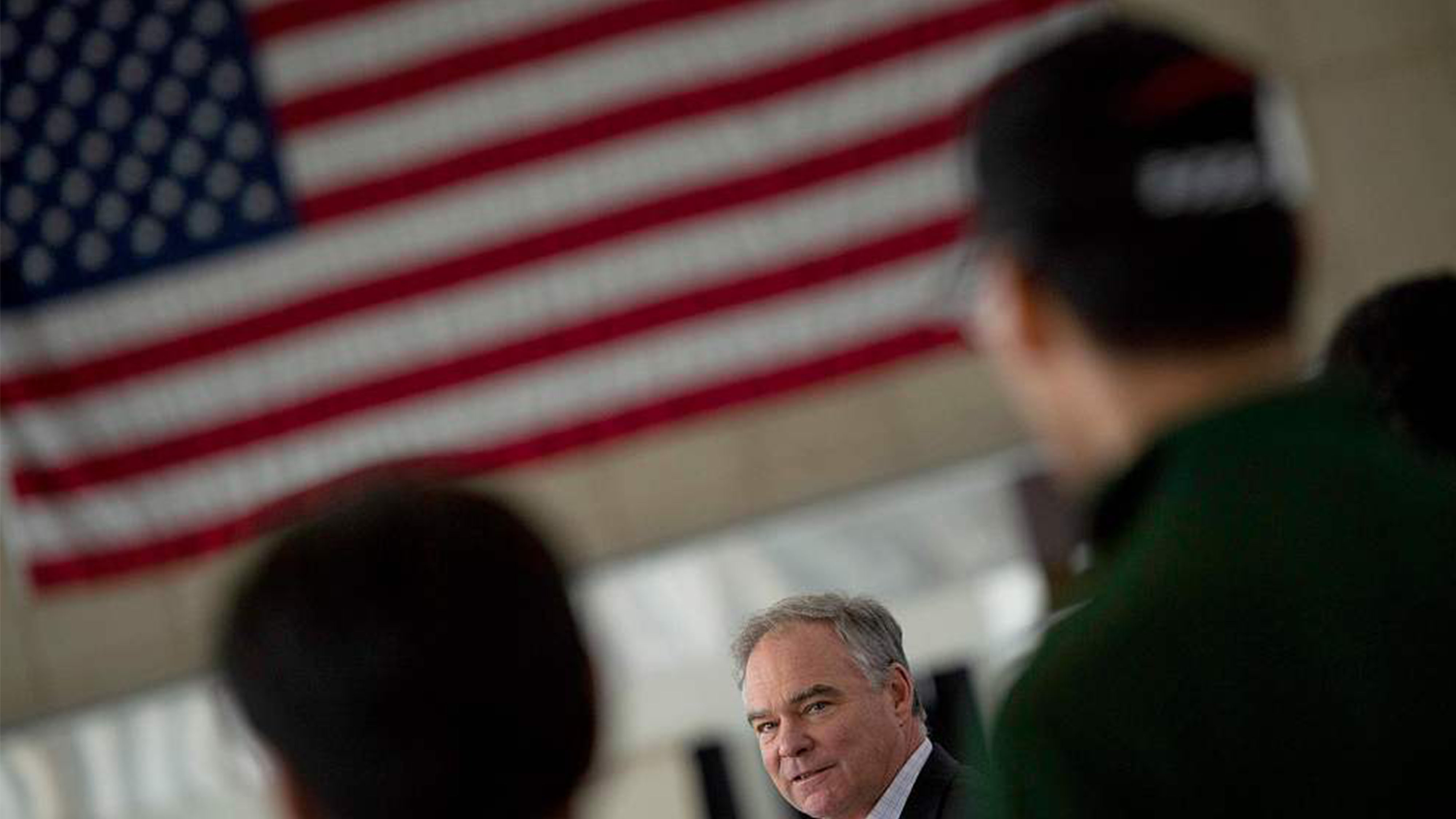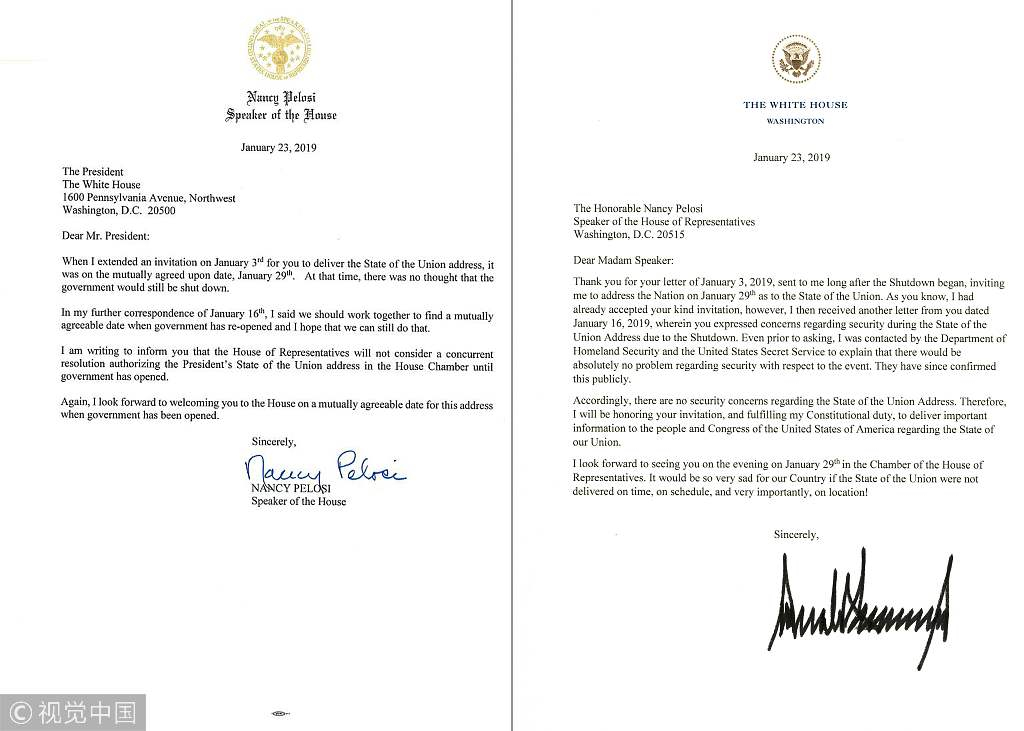
North America
17:47, 25-Jan-2019
U.S. government shutdown: Tit-for-tat exchanges between Trump and Pelosi
Updated
21:18, 25-Jan-2019
Jin Yingqiao
02:38

Heated exchanges have taken place between U.S. President Trump and Democratic leaders over the government shutdown and the president's annual State of the Union address.
The State of the Union address drama started when Pelosi, first in a letter, suggested postponing it or doing it in written form due to lack of security because of the shutdown.

President Trump and Nancy Pelosi's letters to each other on Day 33 of a partial government shutdown in Washington, DC, U.S., January 23, 2019. /VCG Photo
President Trump and Nancy Pelosi's letters to each other on Day 33 of a partial government shutdown in Washington, DC, U.S., January 23, 2019. /VCG Photo
Trump showed who is in charge when he then canceled Pelosi's flight to inspect overseas destinations using a military plane, calling it a "public relations" event not fit during a shutdown. The bus carrying lawmakers was about to leave when the order was issued, leaving some in the vehicle baffled over what to do.
But let's now go back to the beginning of the drama: After Democrats won the House in the midterm elections, Pelosi and Senate Minority Leader Chuck Schumer met Trump in the Oval Office, which turned into a full 15-minute televised fiery exchange. Schumer pushed Trump to say he was "proud" to shut down the government for "border security."
So the shutdown began, and then they met again – this time in the Situation Room. Trump refused the Democrats' suggestion to open up the government first and talk about the wall later.
Trump reportedly said, "I would look foolish if I did that,” saying the wall was the reason he got elected.
Then, on January 8, Trump addressed the nation from the White House, saying a humanitarian crisis was going on at the southern border. Pelosi and Schumer fought back, accusing Trump of "manufacturing a crisis." The next day, they met again, Schumer told reporters that Trump asked Pelosi, 'Will you agree to my wall?' When she said no, Trump just walked out.
Then on Saturday, Trump came up with a different offer – temporary protection for the Dreamers and TPS recipients in exchange for a wall. But before the address was made, Pelosi had already tweeted that it wasn't a "good faith effort" and it was a "non-starter."
The American economy is feeling the heat of the political bickering. Atiba Madyun, President of Party Politics U.S. told CGTN, "We got a real serious issue and it's a very trickle-down effect on our economy. Because when people are not getting paid and then businesses are also losing money. And this shutdown has cost more money to have shut the government down than it would be to pay for the wall that the president is asking for."

SITEMAP
Copyright © 2018 CGTN. Beijing ICP prepared NO.16065310-3
Copyright © 2018 CGTN. Beijing ICP prepared NO.16065310-3